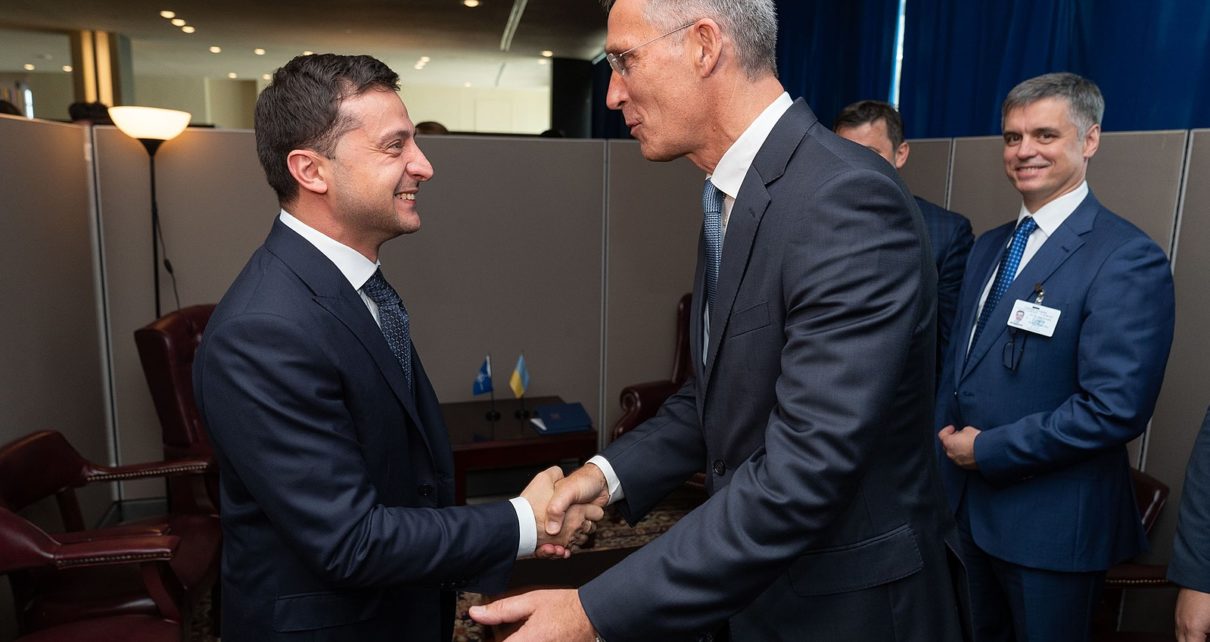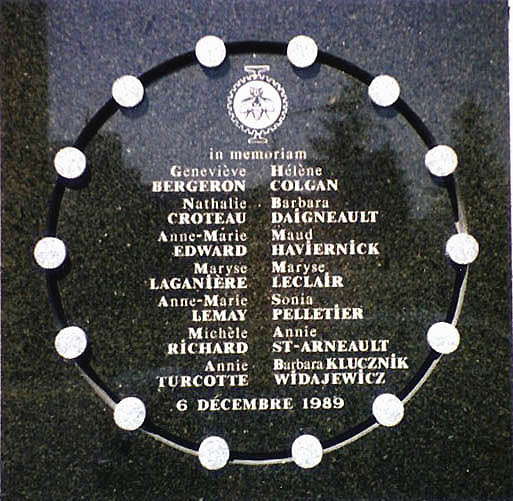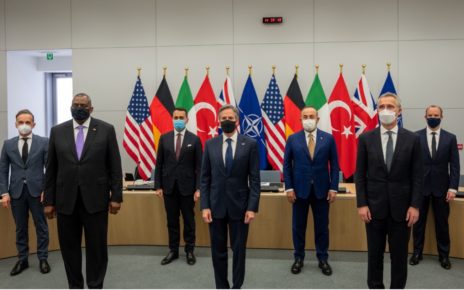Tensions re-emerged in Eastern Europe this early April as Russian President Vladimir Putin positioned over 100,000 troops along Ukraine’s frontier before unexpectedly withdrawing them by April 22, the largest regional military movement since 2014. Despite the troop withdrawal, the protracted conflict that some have dubbed a hybrid war, has no end in sight. Although a full-fledged offensive may have been averted for now, future escalations are possible.
With this context in mind, it is interesting to note that the military buildup coincided with a phone call Ukrainian President Zelensky and NATO’s Secretary-General had. In this phone call, Zelensky reiterated his conviction that NATO membership remained the only thing that could resolve the conflict in the Donbas. This of course irked Russia as the Foreign Ministry warned that joining NATO could lead to “irreversible consequences for Ukrainian statehood.” As such, there is no doubt that NATO remains a key component to conversations surrounding the Russo-Ukrainian war. Within Ukraine, pro-NATO factions look to closer relations with the West as a way of securing their sovereignty, while factions that oppose NATO accession look for more immediate solutions which would curtail influence without antagonizing Russian forces. President Zelensky is of course of the belief that NATO accession is a critical milestone in Ukraine’s objective to assert its own sovereignty. The Ukrainian government hopes to distance itself from Russia’s political influence by strengthening its relationship with the alliance. President Putin and his administration, however, consider Ukraine’s distancing to be a threat to Russia’s national security interests.
The North Atlantic Council has officially stated that Russia’s actions constitute a threat to Euro-Atlantic security. NATO members agree that Russia’s actions undermine efforts to de-escalate fighting in the region and share Kiev’s perspective that Russia’s support of separatists in Donetsk and Luhansk is a means of discouraging Ukraine from joining NATO. Secretary-General Stoltenberg has warned that “no outside country has the right to veto,” referring to Russia’s explicit use of hard power tactics to discourage the Ukrainian government from promoting the idea of joining the alliance. Within Ukraine, there is majority support for NATO membership. A recent survey by the Ukrainian Institute for the Future shows that 64% of respondents expressed support for the country’s accession to NATO, while only 19% opposed it. That being said, only 7% of respondents believe that the prospect of joining NATO is tangible in the near future. Given that 13 years have passed since NATO first expressed interest in inviting Ukraine at the Bucharest Summit and the delays in receiving a Membership Action Plan, Ukrainians remain doubtful over the probability of imminent accession.
For many NATO skeptics in Ukraine, the Georgian War in 2008 serves as a stark example of how efforts to join the NATO alliance may ignite violent escalations with Russia. Indeed, the central friction point between Georgia and Russia was President Saakashvili’s aim to join the alliance. The Kremlin views many post-Soviet states as part of its extended industrial and political network. Like Georgia, Ukraine has looked increasingly westward. A recent survey from the Razumkov Center concluded that 59% of Ukrainians are even in favor of joining the European Union. As such, Russia’s decision to up the ante in Ukraine this past April is reminiscent of its reaction to Georgia in 2008. President Putin showed his willingness to inflate the conflict in Ukraine just as he has done before in Georgia.
Despite being a member of NATO’s Partnership for Peace program, Russia considers the alliance’s activity in the old Eastern Bloc an intrusion on its sphere of influence. Russia continues to view NATO enlargement as a point of contention in its growing rivalry with the West. The Putin administration’s negative rhetoric has had a tangible impact on Russians’ outlook as a recent poll by the Levada Center found that 52% of young Russians hold a negative view of NATO.
President Zelensky has asked NATO members to increase their military presence in the Black Sea to discourage Russian incursion, but as Ukraine is not a NATO member, the alliance is not directly obliged to defend it in a military capacity. NATO remains a strong supporter of Ukraine through diplomatic backing and initiatives like Canada’s Operation Unifier, but the precarious equilibrium risks exacerbating the conflict if NATO adopts an intrusive hands-on approach. That being said, individual member states can play an active multilateral role in supporting Kiev, and NATO’s diplomatic backing could help sustain the pro-accession majority in Ukraine. Member states like Turkey, with a more balanced relationship with Russia and the West, can increase their involvement with Ukraine in a diplomatic and commercial capacity. Given their recent amicable relations, Russia may tolerate Turkey’s presence more than other NATO members. The rising regional tensions also offer Ankara a chance to mend its relationship with the US and other NATO members.
Photo: NATO Secretary-General Stoltenberg and President Zelensky 24/09/2019 via Wikimedia Commons. Licensed under CC BY-4.0
Disclaimer: Any views or opinions expressed in articles are solely those of the authors and do not necessarily represent the views of the NATO Association of Canada.




